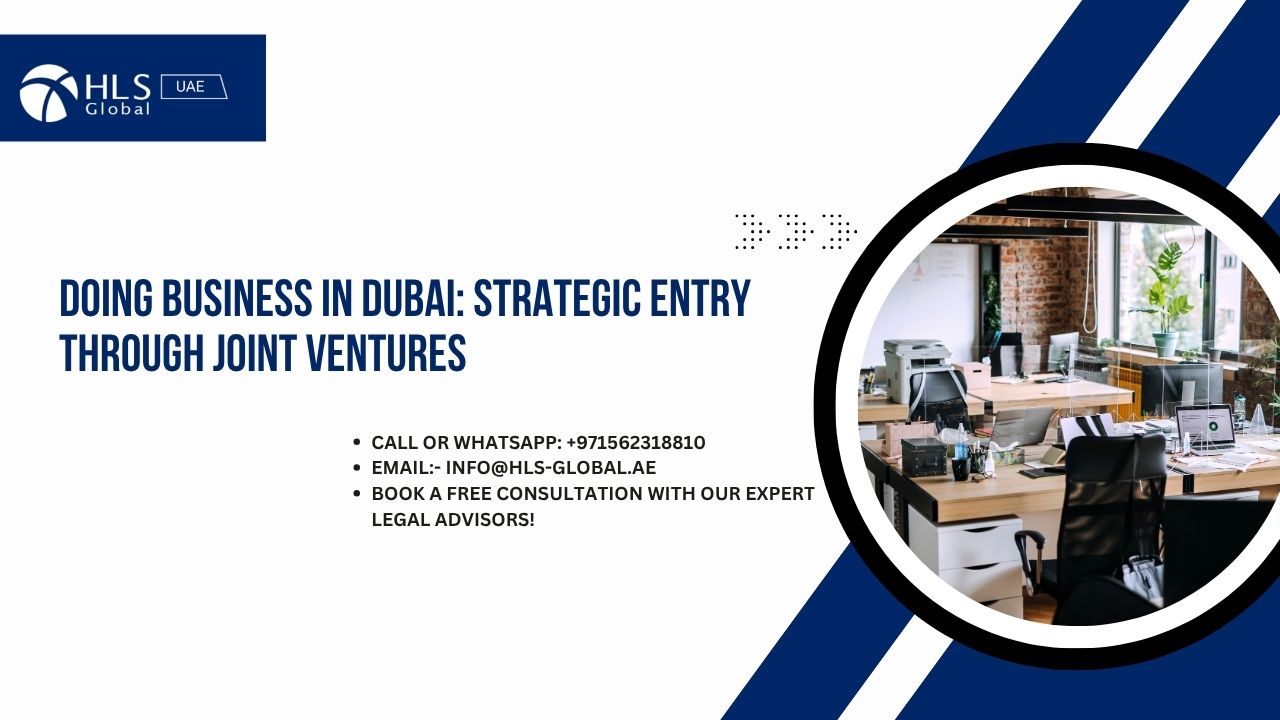Dubai, the commercial capital of the United Arab Emirates (UAE), has rapidly evolved into one of the world’s most attractive business hubs. Thanks to its strategic geographic location, investor-friendly policies, tax advantages, and cutting-edge infrastructure, Dubai draws international businesses aiming to expand into the Middle East, Africa, and Asia.
However, successfully entering and sustaining a business in Dubai—especially through joint ventures (JVs)—requires more than just capital and ambition. As HLS Global explains in their detailed article “JV Success in the UAE Starts Before the First Signature”, preparation, cultural awareness, legal clarity, and mutual trust are the cornerstones of lasting partnerships.
Why Dubai? Key Business Advantages
Before diving into the complexities of business setup, it’s essential to understand why Dubai is such an attractive destination:
-
Strategic Location: At the crossroads of Europe, Asia, and Africa, Dubai offers excellent access to global trade routes.
-
Zero Personal Income Tax: Individuals enjoy tax-free salaries, which attracts skilled global talent.
-
Free Zones: There are over 30 free zones that allow 100% foreign ownership, simplified company setup, and tax incentives.
-
Robust Infrastructure: Dubai is home to world-class airports, ports, telecom, and logistics systems.
-
Stable Regulatory Environment: Dubai has implemented reforms to enhance its business environment and make it easier for foreign investors to enter.
The Role of Joint Ventures in Dubai Market Entry
For many international companies, forming a joint venture with a local UAE partner can be the most effective strategy to enter the market. However, HLS Global emphasizes that JV success is not defined at the moment of signing a contract—it starts much earlier.
1. Conduct Deep Due Diligence
Before entering into a partnership, it’s essential to perform extensive due diligence on the prospective local partner:
-
Examine the partner’s financial health, litigation history, reputation, and business performance.
-
Understand the strategic alignment between your business objectives and the partner’s vision.
-
Verify their network and influence within the UAE market.
Without this groundwork, businesses risk partnering with firms that may not support long-term growth or ethical standards.
2. Understand Legal Structures and Compliance
Dubai offers multiple structures for foreign businesses:
-
Limited Liability Company (LLC): Requires a UAE national sponsor with at least 51% ownership (outside of free zones).
-
Free Zone Entity: Offers 100% foreign ownership but restricts business to within the free zone or internationally.
-
Branch of Foreign Company: A way to operate as an extension of a parent company, requiring a local service agent.
HLS Global recommends working with legal advisors who understand both UAE law and international business practices. This ensures the JV agreement is enforceable, compliant, and transparent.
3. Draft a Comprehensive JV Agreement
A successful joint venture depends on a well-drafted agreement that clearly outlines:
-
The purpose and scope of the JV
-
Roles and responsibilities of each party
-
Decision-making authority
-
Profit-sharing and funding obligations
-
Exit strategies and dispute resolution mechanisms
Having a legal framework that anticipates and prevents conflicts is far more valuable than resolving them later.
Cultural Sensitivity and Relationship Management
In Dubai—and across the UAE—business relationships are built on trust, mutual respect, and cultural understanding. HLS Global stresses that foreign investors should:
-
Be patient with negotiations, which often involve multiple meetings.
-
Respect Islamic customs and public conduct laws.
-
Understand local business etiquette, such as the importance of in-person meetings and hospitality.
Building long-term partnerships requires emotional intelligence and adaptability, not just financial savvy.
Post-Setup Considerations
Once your business is up and running, ongoing success depends on:
-
Compliance with labor, tax, and commercial regulations
-
Effective financial management and reporting practices
-
Continuous engagement with your JV partner to ensure mutual goals are being met
-
Monitoring the market for regulatory changes and opportunities for innovation
HLS Global offers tailored support in these areas, helping international firms navigate the complexities of scaling in Dubai and the broader UAE.
Conclusion: Dubai is Open for Business—But Strategy Matters
Dubai continues to be one of the top destinations for global business, offering unparalleled access to emerging markets, sophisticated infrastructure, and a business-friendly climate. However, starting a business—particularly through a joint venture—requires thorough preparation, legal clarity, and strategic alignment.
According to HLS Global, the success of your UAE venture doesn’t begin with a signature—it begins with deep understanding, cultural awareness, and strong due diligence.
For more expert insights and market entry assistance, visit:
👉 https://hls-global.ae/jv-success-in-the-uae-starts-before-the-first-signature/









